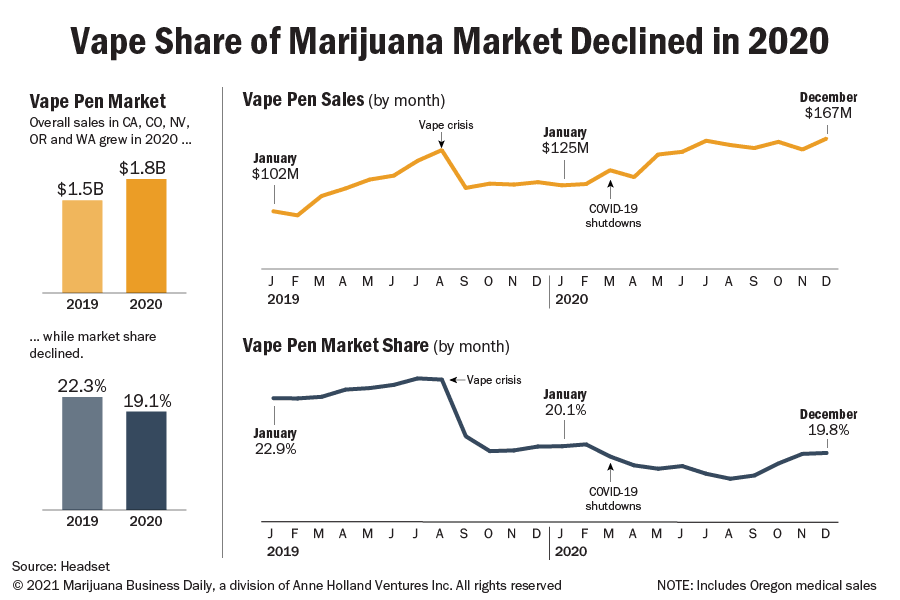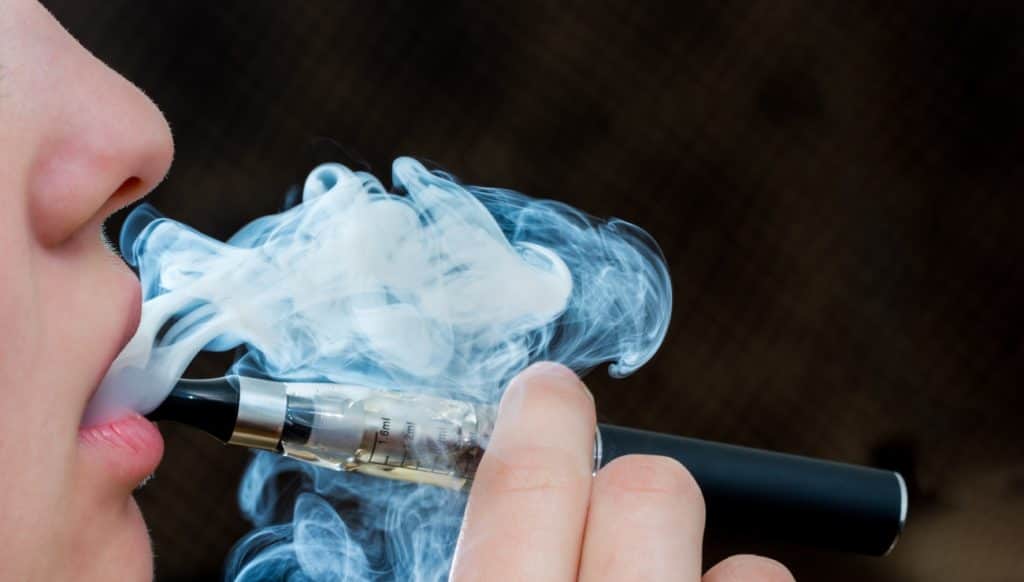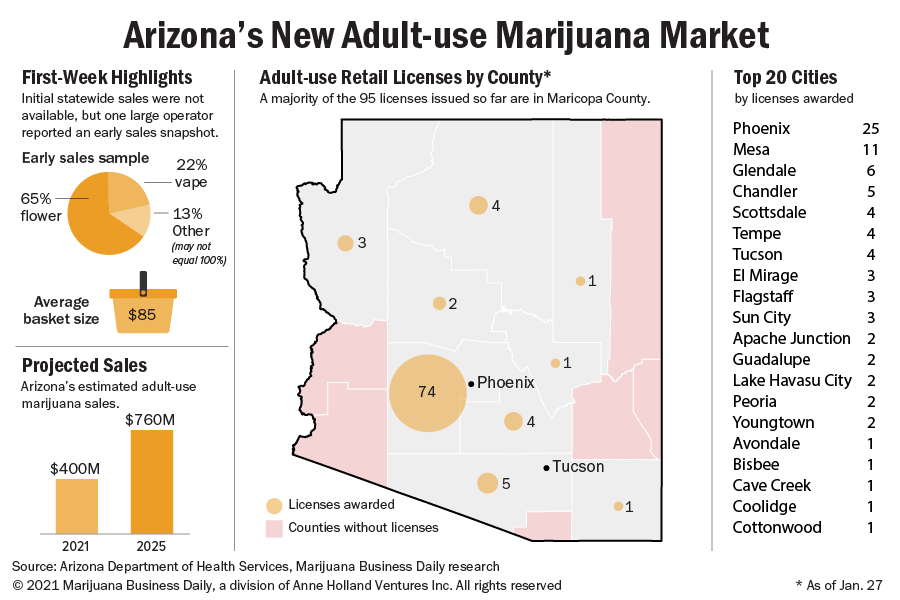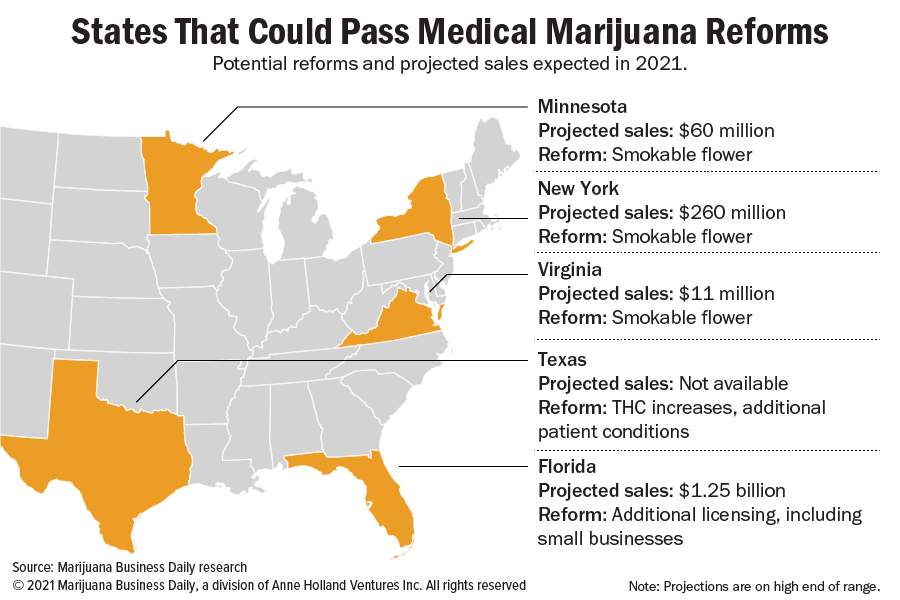The marijuana vapor pen market sector grew at almost half the pace of overall sales for cannabis products last year, despite vape companies’ efforts to reassure consumers about the safety of merchandise sold by legal retailers.
The coronavirus pandemic and lingering fallout from the 2019 vape health crisis have weighed on vape pen sales. Despite the 2020 slowdown, there are signs sales are accelerating.
Across the California, Colorado, Nevada, Oregon and Washington state cannabis markets, recreational marijuana vapor pen sales increased by 20%, from $1.5 billion in 2019 to $1.8 billion in 2020, according to Seattle-based data analytics firm Headset.
While that appears to be strong growth, the overall market for marijuana products grew by nearly double that amount – 39% – over the same time period, Headset reported.
As for overall market share, the vapor pen slice decreased from 22.3% in 2019 to 19.1% in 2020.
Why?
Consumers staying at home during the pandemic might not have as much need for the discretionary nature of vape pens. And the vape health crisis that began in the summer of 2019 had an impact on the sector.
But executives at leading vape pen companies say the industry is more focused than ever on product safety, while pointing out that the blame for the health problems should be directed to the illicit market.
Vape companies also are creating new products that use fewer additives.
Moreover, if there are additional ingredients, it’s more common for companies to use cannabis-derived additives versus artificial ingredients.
The vape cartridge cutting agent vitamin E acetate was identified as a possible reason for the health crisis and triggered added scrutiny on additives.
Vape Pen Segment Sales (2019 to 2020)
| Segment | Sales YoY% |
|---|---|
| Cartridge | 20.7% |
| All-in-one Disposable | 7.6% |
| Refill / E-Juice | -45.2% |
| All-in-one Rechargeable | -87.9% |
Safety focus
As marijuana consumers become more sophisticated and educated about products, they are helping to prod the vape sector to manufacture healthier products.
“There’s no question that people are starting to pay more attention to what is in their vape,” said Alex Pasternack, executive vice president of Denver-based infused products company Binske.
“I think things like botanical terpenes are starting to be scrutinized more frequently.”
Colt Stander, head of product at San Francisco-based vaporizer company Pax Labs, reiterated that the health crisis was driven by products from the illicit market.
“That said,” he added, “there’s definitely been a much larger focus on safety across the industry.”
The company performs much of its own evaluations of various ingredients – both in general and to understand thermal degradation when vaporized at temperature.
“This is work that was underway long before (the health crisis),” Stander said.
“But what we saw unfold in 2019 certainly underscores the need for it, and the importance of advancing this science – work we’re excited to continue to do.”
Consumer confidence
In the Brightfield Group’s 2020 Cannabis Innovations Report, the Chicago-based data research firm said the vape industry’s efforts to increase transparency and promote safety helped the sector.
Kevin Gallagher, executive director of the Colorado Cannabis Manufacturers Association, said the health crisis raised a red flag about safety measures companies are taking.
The crisis also pushed companies to move away from using additives such as propylene glycol and polyethylene glycol.
“One of the good things that came from the vape crisis are some added guard rails that are promoting product quality and product safety,” Gallagher said.
In Colorado, for example, regulators require companies using non-cannabis terpenes to include a certificate of analysis when using the additive.
The state wants to ensure that if a vape company is using an additive, the composition is on the U.S. Food and Drug Administration-approved inactive ingredients list, Gallagher said.
Antonio Frazier, president of CannaSafe, an analytical testing lab based in Los Angeles, said the general trend away from using additives such as vitamin E and MCT oil has helped with safety.
Frazier added that the general consumer who isn’t as aware of the ingredients in vape products is at the mercy of the budtender and the packaging to help explain the products, including the additives and the type of cannabis extract being used.
But the industry has been improving in this area.
“There’s been a bigger focus on labeling and educating the consumer on the chemical composition,” Frazier said.
Cannabis vape companies are increasing their focus on ingredients that don’t rely on additives for flavor but instead represent the entire plant.
“More people are learning what live resin is,” Pasternack said, offering an example.
Looking forward
In addition to the ingredients inside their products, vape companies are looking at the materials used to manufacture the hardware.
Dana E. Shoched, CEO of Michigan-based O2Vape, said the company shifted to all-glass and all-ceramic cartridges for safety and quality reasons.
Binske is also considering pivoting to ceramic cartridges to try to reduce metal touchpoints in its vapes.
Pasternack said that the sector is recovering and dry-flower vaporizers – versus liquid-based products – are becoming interesting to consumers.
“We definitely noticed a bit of a drop in vape sales during the vape health crisis,” he said. “But since the initial drop, it’s been roaring back.”
Pax’s Stander said the category is rebounding as more consumers come around to vaping, both oil and dry flower.
“We’ve just seen a huge shift in consumer awareness around the fact that, like any other product they own, quality and safety matter,” Stander said.
“Consumers want more information about what’s in their cannabis and more control over how they use it.”
Bart Schaneman can be reached at barts@mjbizdaily.com







